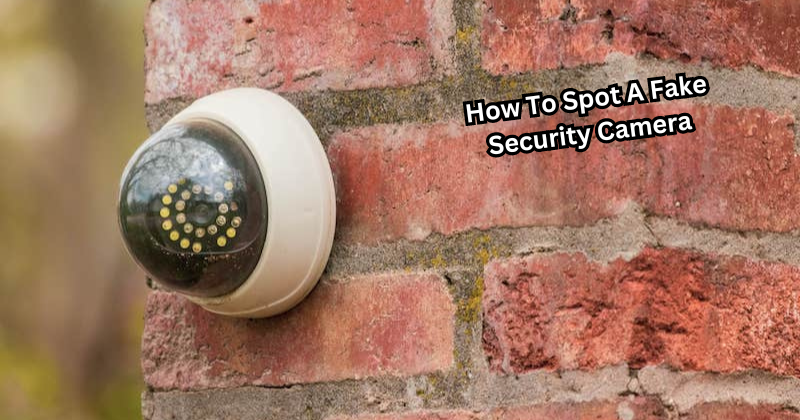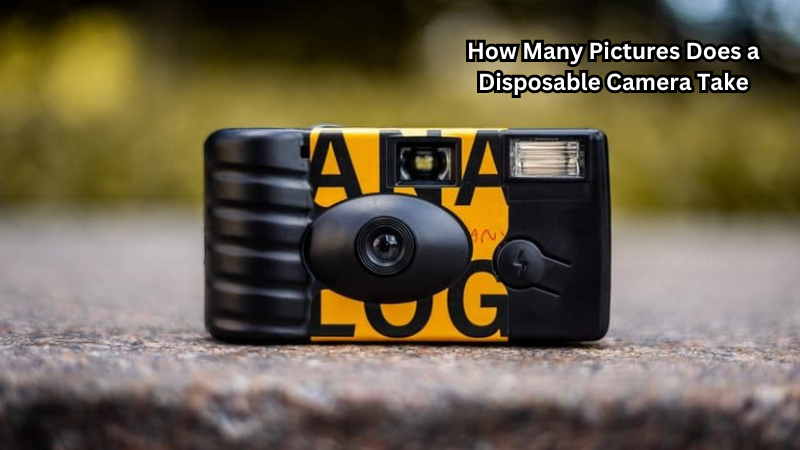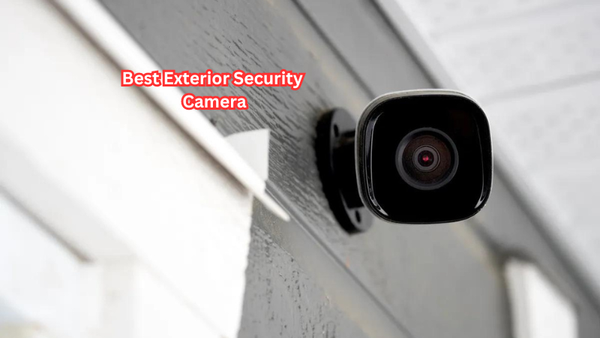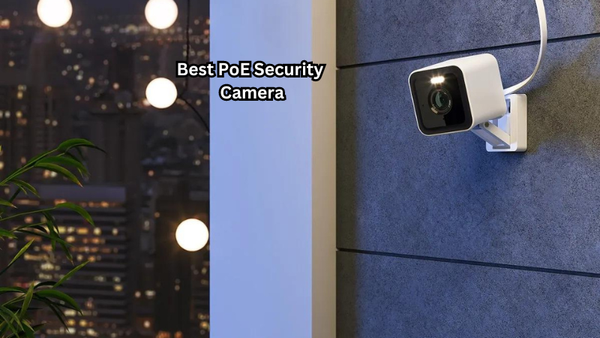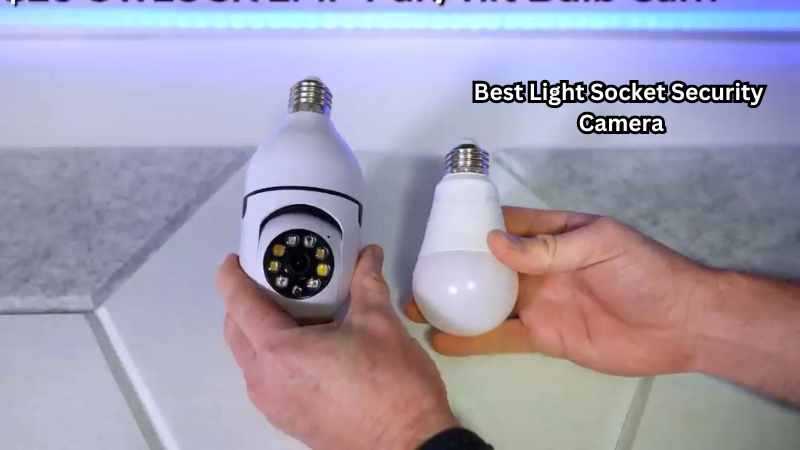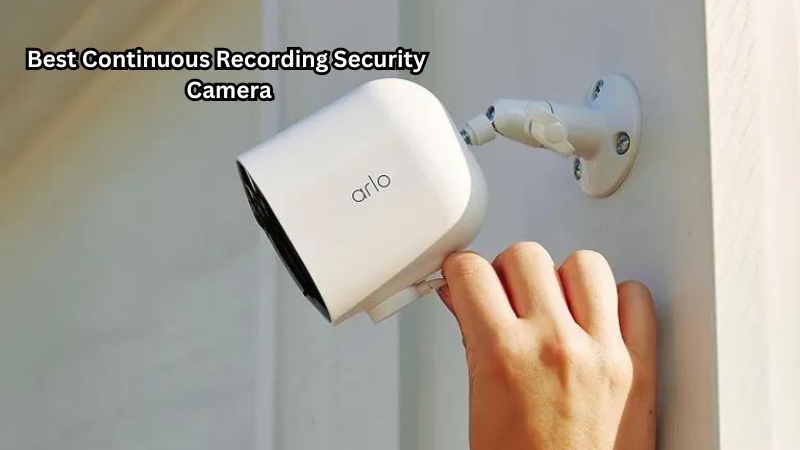Security cameras have become an essential tool in protecting our homes and businesses. With the increasing demand for security, the market is flooded with various types of cameras, including fake security cameras.
These fake cameras are designed to mimic the appearance of real ones, but they do not actually function as surveillance devices. While they may provide a sense of security at first glance, it is important to be able to spot a fake security camera from a real one.
In this guide, we will discuss how you can easily identify a fake security camera and make informed decisions when purchasing or encountering one. Knowing how to distinguish between a real and fake security camera can help prevent you from falling prey to scams and ensure that your property is truly protected.
Why You Should Be Able To Spot A Fake Security Camera
The purpose of a security camera is to monitor and record activities in a specific area, providing evidence in case of any incidents. A fake security camera fails to do so as it does not have the necessary technology and features. This can jeopardize the safety of your property and loved ones.
Moreover, purchasing a fake security camera means spending money on a device that does not serve its intended purpose. This also opens up the risk of potential break-ins or thefts as criminals may be able to identify the fake camera and target your property.
In addition, some individuals may intentionally install fake cameras to deceive others into thinking they are being monitored. This invasion of privacy is a violation of ethical and legal boundaries.
Being able to spot a fake security camera can also protect you from fraudulent salespeople who may try to sell you a fake camera at the price of a real one. It is important to be an informed consumer and not fall victim to scams.
How To Identify A Fake Security Camera
Here are some key factors to look out for when identifying a fake security camera:
Check for wiring
One of the most telling signs of a fake security camera is the absence of proper wiring. Real security cameras usually have visible cables that connect them to a power source and, in some cases, to a recording device or network. These wires are typically well-secured to prevent tampering and to ensure continuous operation. Fake cameras, on the other hand, may have no wires at all, or if they do, the wiring might look superficial and not functional.
When inspecting a camera, look closely at the wiring setup. Authentic security cameras will have cables running down the wall or through conduits. If you see a camera mounted on the wall with no visible wires or with wires that seem to go nowhere, it's a red flag that the camera might be fake.
In some instances, newer wireless cameras exist, but they still require a power source, so some wiring should still be present. Always be vigilant and ensure that the wiring looks substantial and functional.
Look for LED lights
LED lights are often present on real security cameras, especially at night, to provide visibility and deter potential intruders. These lights may be visible as small red or green dots around the lens of the camera or on its body. Fake cameras, on the other hand, may have non-functioning LED lights or none at all.
When trying to identify a fake camera, check for these LED lights and test their functionality by turning off the lights in the room and observing if they turn on automatically. If a camera has no LED lights or if they do not work, it is likely to be a fake. However, be aware that some models of real security cameras may allow you to turn off the LED lights for covert surveillance purposes.
Check the camera lens
The lens is the most crucial part of a security camera as it captures and records images. Real security cameras have high-quality lenses that are often made of glass and can produce clear, sharp images. On the other hand, fake cameras may have plastic or low-quality lenses that cannot capture detailed footage.
To spot a fake camera, inspect the lens closely. Look for any signs of scratches or cloudiness that could affect the image quality. Additionally, you can also take a photo with your phone using the flash to see if there is any reflection from the lens. A genuine security camera will not reflect light, while a fake one might.
Inspect for a brand logo or label
Most legitimate security cameras come with a brand name or logo prominently displayed on the device. This is to establish the credibility of the product and assure customers of its quality. Fake cameras, on the other hand, may have no branding at all or may have a generic label that does not correspond to any known brand.
When examining a camera, look for any visible logos or labels and do some research on the brand if you are unfamiliar with it. If there is no discernible branding or if it seems dubious, it is likely to be a fake.
Test the functionality (if possible)
The most effective way to determine if a security camera is fake or real is by testing its functionality. However, this may not always be possible, especially if you are inspecting a camera in a store. In some cases, the camera may be functional but still fake as it does not have all the necessary features of a real security camera.
If you have access to the camera's control panel or app, try adjusting the settings and see how it responds. Additionally, check for any motion detection capabilities or other advanced features that real security cameras typically have. If the camera does not function as expected or lacks essential functions, it is likely a fake.
Also, keep in mind that some fake cameras may have a blinking red light to mimic the recording indicator of real cameras. Don't be fooled by this as it is easy to replicate and does not necessarily mean the camera is functioning.
Why You Should Avoid Fake Security Cameras
Fake security cameras might seem like a cost-effective and easy solution for increasing security, but they come with significant drawbacks. Not only do they not provide any real protection, but they may also have negative consequences.
Using fake cameras means you are not investing in a legitimate security system that can effectively monitor your property and deter criminals. This leaves your home or business vulnerable to potential break-ins or thefts.
Moreover, installing fake cameras can give you a false sense of security as you believe you are being monitored when, in reality, you are not. This can lead to a lack of caution and make you an easy target for criminals.
Additionally, if a crime does occur on your property and the fake camera fails to capture any evidence, it could compromise any insurance claims or legal action. This can result in financial losses and added stress.
Furthermore, using fake security cameras is also unethical as it deceives others into thinking they are being monitored when they are not. It can also create mistrust towards legitimate security systems, making it harder for law enforcement to do their job effectively.
Does the End Justify the Means?
In some cases, using fake security cameras may seem like a harmless and cost-effective solution to increase security. However, the potential consequences far outweigh any perceived benefits.
Not only do fake cameras not provide any real protection or monitoring capabilities, but they can also lead to a false sense of security and compromise any legal actions or insurance claims in case of an incident. Furthermore, they are unethical and can create mistrust towards legitimate security systems.
When it comes to ensuring the safety and security of your property, it is always better to invest in a legitimate and reliable security system. This not only provides real protection but also gives you peace of mind knowing that your property is being properly monitored.
Ultimately, the end does not justify the means when it comes to faking security cameras. The potential risks and consequences far outweigh any perceived benefits, making it a flawed and ineffective solution for increasing security. Investing in a legitimate system may require more effort and resources, but it is worth it for the safety and security of yourself and your property.
FAQs
How can you distinguish a dummy security camera from a genuine security camera?
To distinguish a dummy security camera from a genuine security camera, look for key features such as the presence of IR lights, which are used for night vision in most real security cameras. Genuine cameras often have visible, small red or white lights around the lens that indicate they are functional, especially in low-light conditions.
What are some signs that indicate a fake security camera?
Some signs that indicate a fake security camera include lack of wiring, unrealistic placement, and absence of brand markings. Most real security cameras have wires connected to power sources or data storage, whereas dummy security cameras often do not. Additionally, the best real security cameras are usually positioned strategically to cover key areas, unlike many dummy cameras that may be placed haphazardly.
How do IR lights help in identifying real cameras?
IR lights help in identifying real cameras because they are used for night vision. If you see small red or white lights around the lens of a CCTV camera in the dark, it is likely a genuine camera. Dummy security cameras typically lack this feature, making it easier to spot them as fakes.
Are hidden cameras more likely to be genuine compared to visible ones?
Hidden cameras are more likely to be genuine compared to visible dummy security cameras because they are designed to be discreet and effective in surveillance. Genuine cameras, including hidden ones, are often integrated into objects or placed in strategic, inconspicuous locations. In contrast, dummy security cameras are usually in plain sight and may lack the detailed construction of real security equipment.
Conclusion
In conclusion, it is essential to thoroughly examine a security camera before purchasing or installing it to ensure its legitimacy. By checking the LED lights, lens quality, branding, and functionality of the camera, you can avoid falling for fake cameras that provide no real protection.
Investing in a legitimate security system may require more effort and resources, but it is worth it for the safety and security of yourself and your property. Remember, using fake cameras not only puts you at risk but also deceives others and creates mistrust towards legitimate security systems.
Don't let a false sense of security compromise your safety and always choose a reliable and trustworthy security solution. So, be cautious and do your research before making any decisions when it comes to security cameras.
